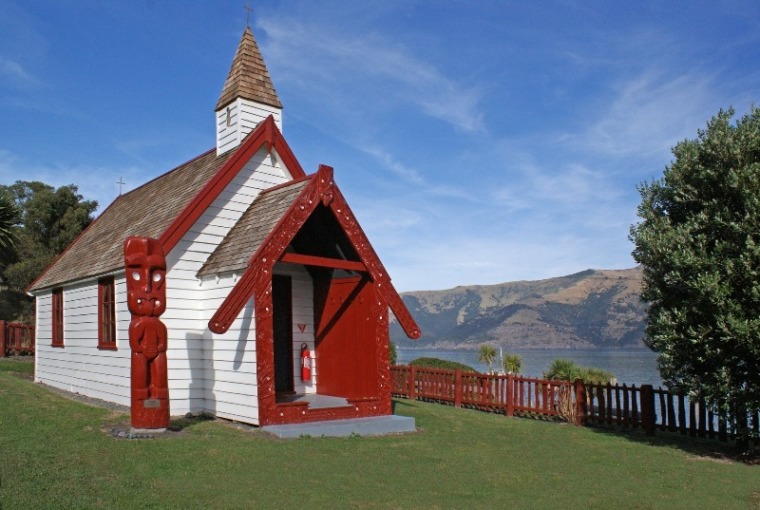
Britain was being dirty.
The world had opened up. Along with Europe, Britain stretched across the globe, colonising old lands, settling new nations.
But indigenous people were already there, guardians of these lands. So they were captured and taken as slaves, or killed, or worse. In some cases, under Italian born Columbus, Latino people were fed to dogs – alive, for fun.
Now there was a particular group of Christians in a town called Clapham, in England. They read the newspapers, saw the slaves passing through, and thought to themselves, “We don’t believe God is well pleased with this sort of behaviour.”
These Christians were “The Clapham Sect.”
The Clapham Sect knew that the gospel of Jesus Christ is far more than going to heaven when you die.
They knew that Christianity is actually about God restoring His broken Creation, and as a part of this rectifying human injustices.
William Wilberforce was a part of The Clapham Sect who we know ended the slave trade in Britain.
They started the SPCA.
They wrote hymns and poems, some of which we still sing in Churches today.
They led the Church Missionary Society and had ties with the Aborigines Protection Society.
And it was The Clapham Sect who first decided that when Britain colonises another land they must form a treaty with the indigenous people of the land.
They believed that the murder, the thievery and the torture must stop. To achieve this they needed to give rights to the indigenous people of the lands being colonised. A treaty would achieve this.
Lord Glenelg was the Secretary of State for the Colonies in 1835. He was also the son of Clapham Sect member Charles Grant. It was through this connection that The Clapham Sect swayed Britain to set terms for sovereignty and land purchases in New Zealand.
Lord Glenelg persuaded The New Zealand Company, back in England, to form a treaty with the Māori of Aotearoa.
The Treaty of Waitangi was dreamed up and instigated by Christians back in England in the early 1800s.
However like any creation event tale, after the forming of something very good there comes a Fall.
Christian missionaries were responsible for the translation of the Treaty into Te Reo Māori. Intentional or not, translation error resulted in much suffering. The English translation of the Treaty of Waitangi did not correspond well to the Te Reo Māori translation. It was understood differently by the Māori chiefs and British colonisers who signed it.
To make matters worse, new waves of overseas settlers didn’t think the treaty belonged to them. They continued settling into Aotearoa as though they were settling into any other ‘New Land’ – with their Eurocentric mentality.
At times, Christian missionaries were allied with Māori to help protect their rights from being taken from them. Rights that existed because of the treaty.
At other times, Christian missionaries were involved in kidnapping Māori from central North Island to take them as slaves.
The relationship was left broken.
Yes it is true that Christ forgives my sins, through his blood that was spilt on the cross, so that I may live in harmony with God. But this is hardly half the gospel.
Christ forgives our sins, through his blood that was spilt, so that we may fulfil our vocation as human beings. We are made to tenderly shine God’s image to the world around us. A vocation we fail.
But God’s kingdom is being launched onto Earth as we speak, and us Christian’s are the ones who are called to be ambassadors of Christ. Thanks to the Cross, we can participate in God’s restorative work in the world where wrongs are being righted. This is the gospel.
“All this is from God, who reconciled us to himself through Christ, and has given us the ministry of reconciliation; that is, in Christ God was reconciling the world to himself, not counting their trespasses against them, and entrusting the message of reconciliation to us.” (2 Corinthians chapter 5, verses 18-19).
This passage does not say that Christ is reconciling me to himself.
He is not reconciling the Church to himself.
He is reconciling the entire created cosmos himself! This includes me, sure – but it’s not actually about me.
But He is going about this reconciliation through the Church. He has given us the ministry of reconciliation.
We get too preoccupied with the thought that Christ is reconciling me to himself. We run our Churches this way. We forget that he is actually reconciling the world to himself through us.
All of creation is being reconciled into harmony through Christ, and mending broken relationships between different ethnicities is meant to be a part of this.
Jesus teaches, “When you are offering your gift at the altar, if you remember that your brother or sister has something against you, leave your gift there before the altar and go; first be reconciled to your brother or sister, and then come and offer your gift.” (Matthew chapter 5, verses 23-24).
Our worship to God is meaningless if we are not going about reconciling a broken relationship with our brothers and sisters first.
The Church was the catalyst for the relationship between Māori and Pakeha. A relationship that’s been broken. Now, today, our worship is waffle if we aren’t interested in reconciling the brokenness of such relationship to bring about restoration. And that’s something to be freaking out about.

Andrew Hill is a true-blue Kiwi, born and reared in Aotearoa New Zealand. He has lived between Auckland, Dunedin and Hamilton, chasing his passion: Knowing God. Andrew has studied theology through various institutions, served as a Youth Pastor and as an Associated Pastor at a couple of Baptist Churches, and currently spends time with people with disabilities as a Community Support Worker through Spectrum Care. Andrew has just finished writing his first novel which he intends to publish shortly, and for fun, live streams on twitch.tv @theophilus_nz.
Andrew’s previous articles may be viewed at https://www.christiantoday.com.au/by/andrew-hill